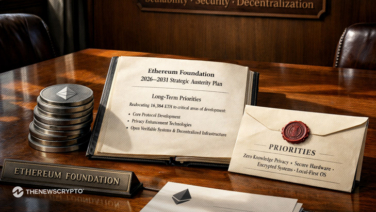- Validators of the Beacon Chain, own 66% of the entire stake.
- Overall, 62% of voters voted to burn the stake.
Today, Vitalik Buterin, a co-founder of Ethereum, joined part in a conversation on the social media platform (Twitter) titled, how will the Ethereum community respond if regulation is implemented through the validator nodes of specific protocols (such as Lido, Coinbase, etc.). To respond to this Twitter polling, Vitalik Buterin voted for X, which considered the censorship an attack on Ethereum and burn their stake via social consensus.
Censorship on the consensus layer is the biggest threat to cryptocurrency. The poll was held by Eric Wall X Software Engineer and a blogger. 62% of voters, including Buterin, voted for censorship an attack on Ethereum, and burning their stake via social consensus. In the meantime, 9% chose to tolerate censorship
fwiw I voted X in your above poll
— vitalik.eth (@VitalikButerin) August 15, 2022
Ethereum Foundation and Vitalik Buterin have been actively starting to identify the entire block proposer separation technique for the past month. MEV-Boost is a proposer-builder separation (PBS) implementation developed by Flashbots for Ethereum’s proof of stake system and MEVBoost is the most likely interim winner.
By reselling their blockspace to an open market while maintaining Ethereum decentralization, validators can use MEV-Boost to maximize their staking reward. Additionally, PBS is designed to stop validators from censuring particular TX but will discover a technique to prevent it from validating a block with Tornado TXs.
OFAC Regulations
According to the current Office of Foreign Assets Control (OFAC) implementation, includes more than just sanctioned addresses and people who have interacted with Tornado in the past. At this time, it appears that more than 66% of beacon chain validators follow OFAC regulations.

Various crypto RPC providers, DeFi frontends, and centralized on-chain services started blacklisting users and transactions after TornadoCash received a sanction in the US and out of concern for consequences from the US legal system.
Recommended for you








